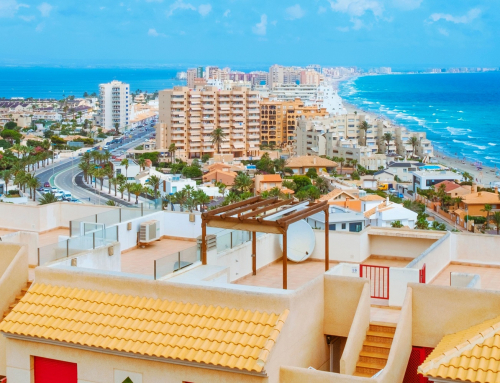After four years of protracted negotiations and wrangling, the UK has officially left the European Union. However, this doesn’t mean that the door has shut for anyone looking to move from Britain to continental Europe. Find out how in this week’s blog.
The transition period begins
The UK’s departure from the EU on 31st January wasn’t a sudden cliff-edge. We’re now in an eleven-month transition period, running until 31st December 2020. During that time, you can move to any EU country now exactly as in previous years. And there’s a big plus, too – move before then and you will guaranteed those self-same EU rights in the future. This means you’ll be able to continue living there and, in five years, apply for permanent residency.
How will property buying change after the transition period?
You might have heard lots of conflicting views in the media, but the important thing to remember is that the EU does not control property ownership – that comes down to each individual country. For example, in France, foreign nationals (EU or not) can buy property, whereas in Cyprus, all foreign nationals have to go through the process of asking permission of the Council of Ministers.
Therefore, your right to buy property will be unaffected. Just the thousands of Australians, Americans, Canadians, New Zealanders etc who purchase in Europe every year, you will still be able to buy that dream home.
What does fall under EU rules is entering and exiting the union (and, more specifically, the Schengen Zone). Non-EU citizens currently do require a bit more paperwork to actually move, and that is likely to be the case for British citizens. The rules are likely to be as follows:
If you’re buying a holiday home
If you’re buying a holiday home, you’re unlikely to want to become resident. As such, as you’ll need is the formality of a tourist visa, which allows you to stay for 90 days within each 180 period. More than enough time to soak up the sun during your winter break!
If you’re moving permanently
If you’re moving to live abroad full-time, then you’re likely to need residency. To gain temporary residency, you’ll probably need a visa to enter the country. However, do not worry – most countries have a surprisingly wide range of visas. In addition to working visas, you’ll often find what are termed ‘non-lucrative’ or ‘investment’ visas, which you can essentially consider to be retirement visas. They allow you (retired or not!) to move if you meet a specific passive income requirement (ie you’re earning more, or have sufficient funds so as not to be a burden on the state, but without working – this could be from pensions or investments, for instance).
What are your next steps to buy after Brexit?
If you can, for ease of bureaucracy, it’s best to buy during the transition period – so start your property hunt on Green-Acres today. And, don’t miss your free country buying guides for advice on how to purchase within the next few months.
If you can’t buy before the transition period, not to worry! Continue your plans, but make sure you speak to a lawyer for advice about the best visa for your situation. Remember that once you have lived with temporary residency from that visa for five years, you can apply to be a permanent resident or, in many cases, a citizen.
—
The pound could suddenly drop at any time, again, with so much uncertainty around the final trade negotiation deal with the EU – but you can protect your money against this risk. Find out how in the Property Buyer’s Guide to Currency
If you find the home of your dreams but it’s beyond your budget, effective negotiation could make the vital difference. Download the How to Negotiate Abroad Guide.
Private sellers ? Advertise on Green-Acres
Agency ? Advertise on Green-Acres







